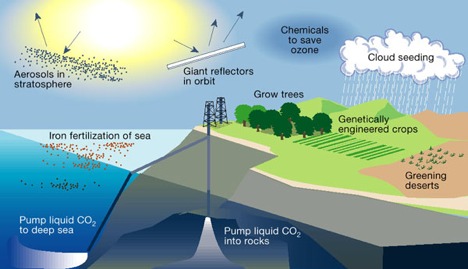I’ve always been a bit intimidated by juggling. The hand-eye coordination, timing and patience required to fluently handle flying objects are skills I haven’t mastered yet. But last year I realized just how impressive and relevant juggling is when I used it as a frame for viewing global climate change. Climate change is, quite literally, terrifying. As Rob Hopkins, founder of the Transition Town Initiative said, “if it isn’t scary, then you really haven’t understood it” (Hopkins 2008). Earth is in the processes of rejecting humans and the implications of this process are unsettling, to say the least. Scientists, policy makers, economists– people everywhere are searching for a means of framing climate change that illuminates solutions. Although juggling isn’t the panacea of frames, I found it highlighted a means of learning that falls outside the usual box of problem solving.
 When I first began juggling, I found the process fast and complex and felt thoroughly out of control. As I juggled, I noticed that I would toss the balls up and away from my body, always needing to chase after them and never having enough time to catch up. I would lose balance immediately and all balls would end up on the floor. After hours of trying to gain control with quick and desperate movements, I was getting nowhere. I slowed down and focused. I began tossing the balls backwards towards myself, with each movement reevaluating the arch between my hands. As I surrendered my need for control, I unconsciously became part of the system and everything slowed down. I began to see, as well as feel, how slight changes had huge effects on the overall cycle.
When I first began juggling, I found the process fast and complex and felt thoroughly out of control. As I juggled, I noticed that I would toss the balls up and away from my body, always needing to chase after them and never having enough time to catch up. I would lose balance immediately and all balls would end up on the floor. After hours of trying to gain control with quick and desperate movements, I was getting nowhere. I slowed down and focused. I began tossing the balls backwards towards myself, with each movement reevaluating the arch between my hands. As I surrendered my need for control, I unconsciously became part of the system and everything slowed down. I began to see, as well as feel, how slight changes had huge effects on the overall cycle.
Responding and adapting to climate change involves juggling an incredibly large number of complex issues. There is however, a general consensus that we are aiming to create a sustainable human society. Therefore, when applied to climate change, our three main balls might be labeled: ecology, equity, and economy. As climate change moves into the forefront of many conversations, people are realizing the severity of our predicament. The idea that Earth may be completely different within the next century is incomprehensible. It feels like we have no control over the systems and feedback loops we have reflexively initiated and the pressure of time weighs heavily on us as we search for solutions.

We have largely approached climate change with the quick fixes and desperate measures that I used to gain control in my juggling experiment. Individuals, feeling helpless look outside of themselves for solutions and wait for policy makers to guide them. Geoengineering plans, or large-scale technological solutions are being considered for implementation. It seems that on a large collective scale, humans are still wildly chasing.
In our efforts to face climate change, most of us are either waiting for someone to tell us what to do, or desperately grasping at all possible means; there are just too many balls in the air. Now more than ever, we need to step back and observe our actions and ourselves as part of a larger system. Juggling can be used as a re-framing tool to help focus our efforts on the three core principles of sustainability. The economic, ecological and technological lenses Parker and Blodgett describe in In Global Climate Change; Three Policy Perspectives may offer a more tangible guide towards discovering feasible solutions. But regardless of the lens we choose to view climate change through, the metaphor of juggling might help us keep the big picture in mind and inspire us all to act with intention, imagination and awareness both individually and cooperatively.
Some inspiration: Amazing Juggling Finale
Tags: climate change, Danielle Hoffman